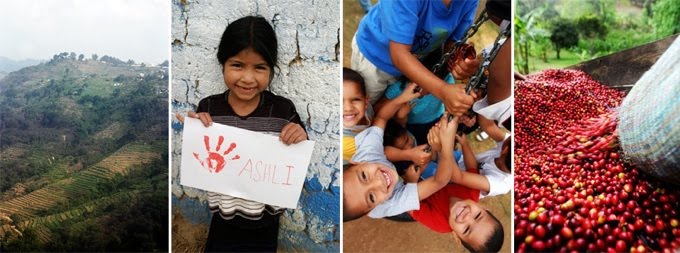sweet nutty tones and chocolate finish. It has a characteristic low-acidity which has made it a frequently sought after base in many espresso blends, including many of the best I have ever had.
History
Brazilian coffee has a very interesting history. For many years, in Brazil, there was a quota system set in place by the International Coffee Organization (ICO) and the Brazilian Institute do Café (IBC). To meet quotas during this time many producers blended high quality coffee with low quality coffee, creating a reputation within the industry that Brazilian was only good for blends. However in the last fifteen years the quota system was eliminated and Brazilian coffee is on the rise. The reputation Brazilian coffee has for being only good for blending is now only a myth. Revolutions in coffee methods for growing and producing have put Brazil on the map for quality coffee.
History
Brazilian coffee has a very interesting history. For many years, in Brazil, there was a quota system set in place by the International Coffee Organization (ICO) and the Brazilian Institute do Café (IBC). To meet quotas during this time many producers blended high quality coffee with low quality coffee, creating a reputation within the industry that Brazilian was only good for blends. However in the last fifteen years the quota system was eliminated and Brazilian coffee is on the rise. The reputation Brazilian coffee has for being only good for blending is now only a myth. Revolutions in coffee methods for growing and producing have put Brazil on the map for quality coffee.
Processing
Although you can find Brazilian coffee that has been processed using wet (washed), dry (natural), and semi-washed (pulped natural) methods. Brazil has made famous the pulped natural way of processing coffee. This method can't be used in many places of the world because there needs to be a very low humidity in order for it to work since this method requires the mucilage on the outside of the coffee beans (seeds) to dry rapidly. In areas with too much humidity the coffee will start fermenting and the desired flavor will be lost. Many of the highest ranked coffees in Brazil use this method, although there are other fine coffees produced using other methodology (our brazil for example is a Natural process and is oh so delicious).
A little Bit About Our Brazil
As I mentioned above we offer a natural process Brazil. We love this coffee because of it's clarity, intensity, and fruit notes, which is much better then that of Brazils processed in other ways. Since we are a small batch artisan roaster all our coffees are sorted at the time of roasting assuring that the end product is free of any defects that are notorious in natural processed coffee. A cup of CA's Brazil is sure to please.
We get our coffee from the legendary Fazenda Ambiental Fortaleza (FAF) farm renown for it's quality, sustainability, and organic farming practices. For more information on our Brazil Click Here
A little Bit About Our Brazil
As I mentioned above we offer a natural process Brazil. We love this coffee because of it's clarity, intensity, and fruit notes, which is much better then that of Brazils processed in other ways. Since we are a small batch artisan roaster all our coffees are sorted at the time of roasting assuring that the end product is free of any defects that are notorious in natural processed coffee. A cup of CA's Brazil is sure to please.
We get our coffee from the legendary Fazenda Ambiental Fortaleza (FAF) farm renown for it's quality, sustainability, and organic farming practices. For more information on our Brazil Click Here



No comments:
Post a Comment